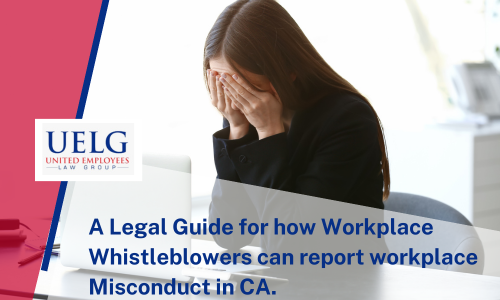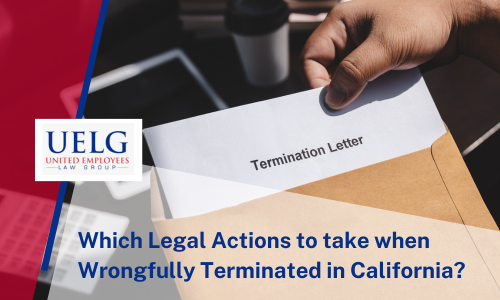Top 5 Most Common California Labor Law Violations

People call in everyday with various employment issues or concerns but what is interesting to me is that the majority of the time they have one of these 5 issues and they didn’t even know it. I have had clients tell me that they just assumed that they were being paid and treated properly because the company that they work for is so big and well known: ”They must know what they are doing, right?!” The truth is that labor violations occur in any size business and that it’s the employee who needs to arm themselves with knowledge of their rights, or at least contact a California labor law attorney with any questions or concerns.
1. Misclassified as an Exempt Employee (salary) ….when in fact they should be Non-Exempt (hourly). Companies are not allowed to arbitrarily classify their employees as exempt from overtime.California labor laws have set strict guidelines regarding who will be considered exempt. The most important thing to remember is that your exemption status is based on your actual job duties, not on your job title or on the job description given to you by the company.
2. Working Off the Clock Non-Exempt employees are often pressured to work while they are not clocked in. This could mean coming in early to work to prepare for the day or clocking out and remaining to finish work at the end of the day. Oftentimes employers will not come right out and tell their employees that they must work off the clock, but the employer might pressure the employees by threatening with write-ups or termination if all of the work is not completed before the end of the day, and in the same breath make it known that overtime is not allowed. Other times it’s more systematic, for example: an employee must spend 10 minutes in the morning booting up the computer system and log on to their computer before they are granted access to use the time keeping system. Or, route drivers often have to load their trucks but their time clock doesn’t start until their first stop.
3. Misclassifying Employees as Independent Contractors Oftentimes employers will classify employees as independent contractors in order to avoid paying overtime, additional taxes and insurance. Again, California labor law has set guidelines regarding who can be classified as an Independent contractor. In order to be an independent contractor you should be responsible for the following: • Make your own schedule • Use your own equipment, vehicle, tools, etc. • Not have to wear a uniform for the other company • Not have a supervisor or manager directing you on a regular basis
4. Not Providing Suitable Seating for Employees Private Attorneys General Act (“PAGA”) states “nature of the work reasonably permits the use of seats.” Recently large companies like Home Depot, Whole Foods, Costco and Nordstrom have all been in the courts for this violation, typically for not providing seating to cashiers or other positions where the employee is somewhat stationary.
5. Failing to pay Reporting Pay Reporting pay is owed when an employer has an employee come to work but then decides that person is not needed for the day and sends them home or works less them half of the shift they were scheduled to work. At this point an employer is required by California labor law to pay this employee for half of the usual or scheduled day’s work. This amount should be no less than two hours or more than four hours at the employee’s regular rate. The exception is that if employee was unable to work due to acts of God, threats to employee or property, etc.
Labor law is complex; if you have any questions regarding your employment it is recommended that you contact a California labor law attorney who can help you understand your rights and in many cases will review your situation without charge.
Photo Credit: Shutterstock/Vlad Teodor











